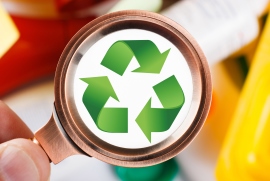Alternatives To Recycling

Did you know that plastics that can't be recycled can be used as an alternative fuel source? Alongside other alternative energy options like solar and wind power, converting plastic waste to energy is becoming an increasingly significant option due to the high amount of energy it can produce.
Plastics NZ believes that all plastics should be reused and recycled if possible, but when it isn't, the energy from plastics can be recovered to power homes, vehicles and businesses.
A study undertaken by the Earth Engineering Center (EEC) of Columbia University and sponsored by the American Chemistry Council (ACC) found that if all the non-recycled plastics currently dumped into landfills each year in the United States were converted to energy using currently available technologies, they could provide at least enough energy to fuel six million cars for a year, and potentially much more.
With around 85% of plastics that don't get recycled going into landfills there is an opportunity to make use of this vast source of untapped energy. Countries in Europe are leading the way in waste-to-energy technology and in building the facilities necessary to divert solid waste from landfills and create useful energy.
Burning plastic is a direct replacement for burning fossil fuel such as coal, and can be sent to specially-built facilities to handle waste-to-energy. Non-recycled plastics are burned with all other waste and resulting in emissions that are lower from a waste-to-energy facility than from a coal-fired facility.
Degradable Plastics and Commercial Composting
If you are purchasing or commissioning a degradable plastics product make sure you consider:
- How it is labelled;
- How you expect it to be disposed of;
- What recovery systems are in place eg. landfill, recycling, or composting;
- The infrastructure required; and most importantly
- Ensure that the product has been tested against internationally agreed standards that ensure your disposal options are appropriate and environmentally sustainable.
The terms bioplastic, biodegradable, degradable and compostable are often misunderstood and misused. In particular, the terms biodegradable and compostable should only be used if they include a reference to an international standard and/or the specific time, temperature, water, air exposure conditions required.
For more information see:
- Biodegradable Plastics - Developments and Environmental Impacts Environment Australia Report, Nolan ITU, October 2002
- Home Composting of Compostable Bioplastics - a position paper from the European Bioplastics Industry Association
- EN 13432 Certified Bioplastics - Performance in Industrial Composting - a paper from the European Bioplastics Industry Association
- Accountability is Key - Environmental Communications Guide for Bioplasticsby the European Bioplastics Industry Association
- NZ Commerce Commission - Guidance on environmental claims
- British Plastics Federation Guide on the use of Environmental of 'Green' claims on plastic products
